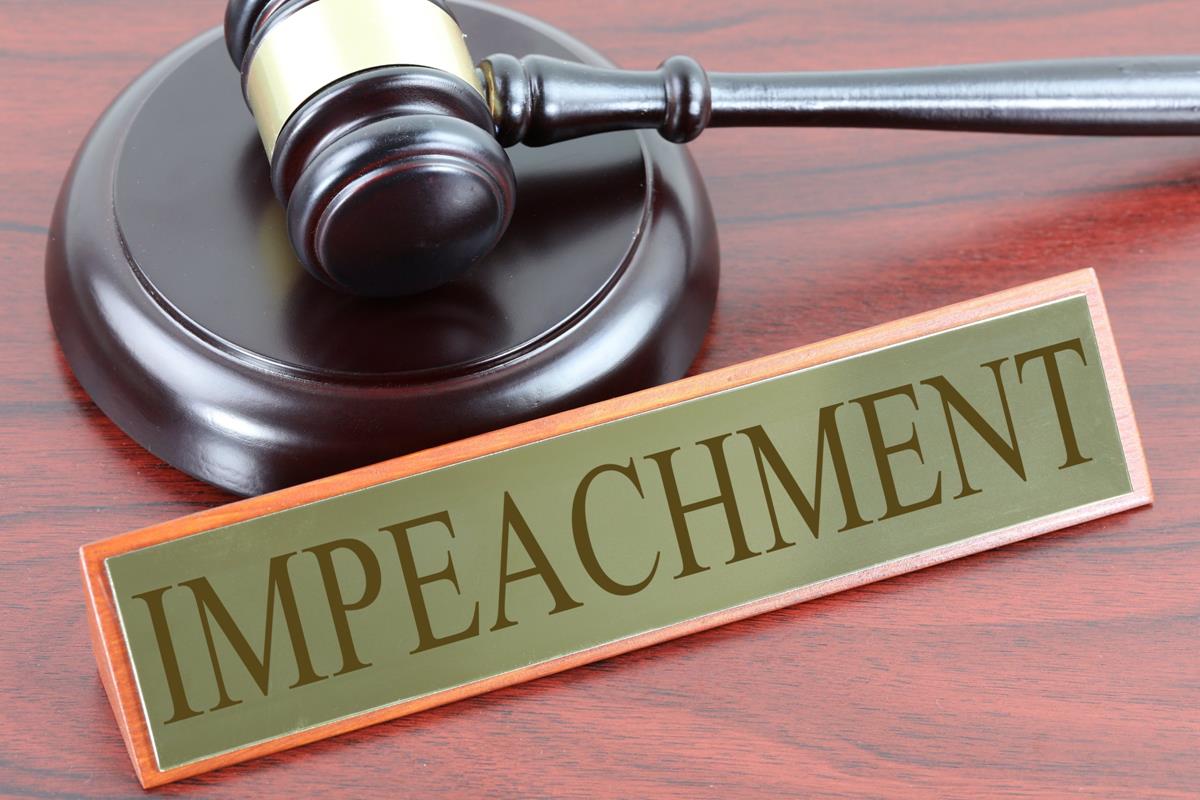Trump’s Impeachment: An Overview
December 30, 2019
The United States House of Representatives impeached President Donald Trump on Wednesday, December 18, 2019. The following is a simplified overview of what has happened and what’s to come.
What is impeachment?
To be clear, impeachment does not mean being kicked out of office. It means that the President will go on trial in the Senate for “high crimes and misdemeanors,” as stated in the US Constitution. The two other presidents that have been impeached are Andrew Johnson and Bill Clinton. To actually vote Trump out of office, the Senate must reach a two-thirds supermajority after a close inspection of evidence and weighing of claims. In the case of Bill Clinton, the Senate voted almost exactly on party lines, and a Democrat-majority Senate saved him. Republicans hold the majority in the Senate this year, so if history repeats itself, it is unlikely that Trump will actually be kicked out of office.
What is the impeachment about?
In the July 25 phone call between President Zelensky of Ukraine and Trump, Zelensky asked for more military aid from the United States. Trump responded with, “I would like you to do us a favor though.” The “favor” pertains to a Ukrainian investigation of Trump’s 2020 election rivals — specifically, Joe Biden’s son, Hunter. Hunter Biden is the subject of conspiracies regarding his business deals in Ukraine while he served as a board member on the energy company Burisma. A whistleblower complaint, filed by an anonymous White House official in September, reports that Trump was willing to use his office for political gain, a clear abuse of power. The White House released the call transcript shortly after. The Democrats point to a quid pro quo, or an exchange in favors, that involves a foreign country meddling in American election affairs while Republicans argue that the call is not enough evidence to impeach a president.
What has happened so far in the process?
On December 18, 2019, all Republicans voted against the impeachment of Trump, while most Democrats voted for the impeachment. The House of Representatives, which has a Democrat majority, voted on two articles: an abuse of power article (passed 230 to 197) and an obstruction of justice article (passed 229 to 198).
So far, Nancy Pelosi (D-CA) has been withholding the impeachment articles from the Senate, which impedes the trial. She won’t hand them over until the rules for the trial are established. Meanwhile, Senate Majority Leader McConnell (R-KT) and the Senate Minority Leader Chuck Schumer (D-NY) clash over the proceedings.
Right now, senators are considering whether or not witnesses should be called in to testify. McConnell has been fighting against bringing in witnesses, while Democrats insist that witnesses are imperative to the trial process. Since McConnell ultimately has the power in the Senate, it is likely there will be none. If Trump wants to call the whistleblower or Hunter Biden in to testify, however, McConnell probably won’t say no.
What is going to happen?
Since impeachment is not removal from office, the Senate plans to hold a trial after the new year to vote on whether or not to remove the President from office. Even though it is not necessary by the Constitution, McConnell decided to hold a trial where the Senate acts as the jury. In order for the trial to begin, the rules still need to be established and the impeachment papers have yet to be given to the Senate. The democrats have been wary of the impartiality of the jury, as McConnell has already announced his plans to work closely with the White House regarding the defense. Schumer represents the other side of the coin, arguing against McConnell’s skewed perspective of the impeachment.
If the trial removes Trump from office, Vice President Mike Pence will become the new President. This is unlikely, however, since Republicans hold 53 seats in the Senate. Regardless of whether or not the Senate votes to remove Trump from office, this is an important time in American history as Congress fights over presidential political boundaries.




Limin Wang • Jan 23, 2020 at 9:47 am
thanks, great clarity.